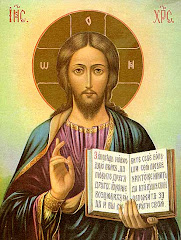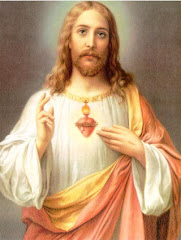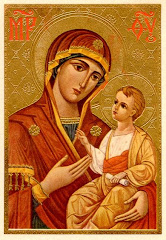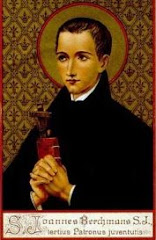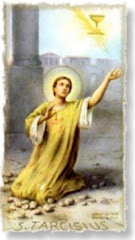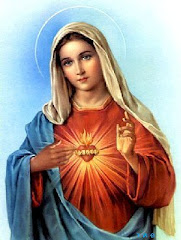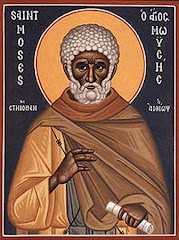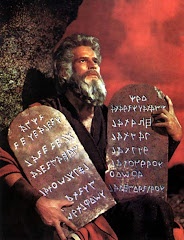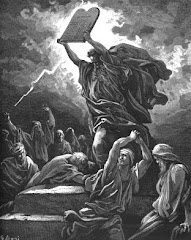Saturday, January 24, 2009
Friends
As many of us know, friends are very important people in our life. Like some would say, life is meaningless without friends. Yes i agree. However, family is important too. Blood is always thicker than Water. We should not neglect our family for our friends neither should we neglect our friends for our family as both are equally important. BUT I HAVE TO ASK YOU THIS QUESTIONS: Why do you want to befriend me? What in me you like until u want to be friends with me?
This is just a few questions to ponder on. It seems easy but it is not. One wrong answer and KABOOM. Your friendship is over.
I tried asking a few people and many answered this question like this:
ME: Why do you want to friend me actually?
Peter: Friend you? You mean me and you?
ME: Yeah.........
Peter: er.......(thinking)
**i was wondering why it was so hard for him to answer my question**
ME: Faster...faster. I ain't got all day.
Peter: Because.....er....because...er...you...
ME: Ya...................
Peter: You are kind, hardworking and friendly.
Ok, what you just saw was a example of a conversation. Peter said to me that he befriended me because I was kind, hardworking and friendly. That is not a very good answer actually. This answer is actually used by few MILLION people around the world. It is indeed the safest answer but it's lame. And when i heard that from him, i just felt like not satisfied. I'm not angry at him but just feel......u know...THE FEELING. The best way to answer a question like this is actually saying "DON'T KNOW" or "DUNNO". Think of this, a friend whom don't know why he befriend you but likes to be your friend. Isn't this amazing. You should actually take good care and do not let go of that friend as he is speacial. He likes to friend you for no reason. He himself doesn't know why he friend you. It's the power of LOVE and FRIENDSHIP actually. So this is why i say a friend who say he don't know why he befriend you IS GOOD:
What if they say this:
1. you are pretty/handsome- if they say this then they indirectly mean they won't friend you anymore if you are ugly or one day when your beauty fade away. Right?!
2. you are hardworking- so they are saying that if you one day decided not to study but play, they won't friend you anymore. Right?!
3. you are the top boy in your school- what if you become second best in your school?! They won't friend you anymore?!
4. you are rich- again, if you one day became poor, then they will not friend you anymore?! Right?!
So, "DON'T KNOW" or "DUNNO" is the best answer i think. You may disagree but i've told you the reason why it is GOOD.
Ask your friends why they befriended you and see how they struggle to answer you. Over 50% wiil say they don't know why. It is because they love(care for you) and befriend you without any conditions or in Bahasa Melayu-tiada syarat.
That is all I can write for now......do enjoy my other postings. Do comment if you have thing you want to ask. Take care. God bless.
Monday, January 19, 2009
St.Paul(apostle) does not restrict women from serving????
Phoebe (Koine Greek Φοίβη) was a Christian woman mentioned by the Apostle Paul in Romans 16:1.
Some have interpreted the Greek "diakonos" to relate Phoebe as a deaconess, however the more traditional and literal interpretation of the word is as a servant. The proper exegesis would allow continuity with the Pastoral Epistles which strictly show that the Apostle Paul directed men in the ordination of deacon's. This would also allow the continuity of other scripture where the same Greek word "diakonos" is primarily translated as minister and servant.
The Greek of Romans 16:2 uses the term prostatis which may indicate that she was Paul's patroness [1].
Some scholars believe Phoebe was responsible for delivering Paul's epistle to the Roman Christian church.[citation needed] She is commemorated with Lydia of Thyatira and Dorcas in the Calendar of Saints of the Evangelical Lutheran Church in America on January 27 and on October 25 in the Calendar of Saints of the Lutheran Church - Missouri Synod. Her feast day in the Roman Catholic Church is September 3.
Phoebe was a Christian woman, described in Romans 16:1 as a "deacon" or "servant" in the church of Cenchreae. Some have called Phoebe a "servant," using a general rather than specific translation of the text from the original Greek. Still others have referred to Phoebe as a "deaconess."
The Greek word diakonos, used to describe Phoebe in Romans 16:1, is the masculine form of the noun. Therefore, the word should be translated into English as deacon rather than deaconess. Phoebe was a deacon of the church in Cenchrae, according to a strict translation of Romans 16:1. While the word diakonos is translated in other portions of the New Testament as servant, it is also translated as deacon in still other passages. The Today's New International Version of the New Testament rightly translates diakonos as deacon.
While some maintain that Paul restricted the office of deacon to men, other scholars dispute that assertion. For example, when describing the qualities that the office holders called "deacons" must possess, Paul, wrote in I Timothy 3:11 that the gunaikas (Greek for women) "are to be worthy of respect, not malicious talkers but temperate and trustworthy in everything." Combined with the fact that Paul called Phoebe a diakonos in the church, Paul's instruction to the "women" in I Timothy makes it apparent that there was an order of deacons in the early church that included both male and female members.
Who is St.Nicholas?
 The true story of Santa Claus begins with Nicholas, who was born during the third century in the village of Patara. At the time the area was Greek and is now on the southern coast of Turkey. His wealthy parents, who raised him to be a devout Christian, died in an epidemic while Nicholas was still young. Obeying Jesus' words to "sell what you own and give the money to the poor," Nicholas used his whole inheritance to assist the needy, the sick, and the suffering. He dedicated his life to serving God and was made Bishop of Myra while still a young man. Bishop Nicholas became known throughout the land for his generosity to the those in need, his love for children, and his concern for sailors and ships.
The true story of Santa Claus begins with Nicholas, who was born during the third century in the village of Patara. At the time the area was Greek and is now on the southern coast of Turkey. His wealthy parents, who raised him to be a devout Christian, died in an epidemic while Nicholas was still young. Obeying Jesus' words to "sell what you own and give the money to the poor," Nicholas used his whole inheritance to assist the needy, the sick, and the suffering. He dedicated his life to serving God and was made Bishop of Myra while still a young man. Bishop Nicholas became known throughout the land for his generosity to the those in need, his love for children, and his concern for sailors and ships.Under the Roman Emperor Diocletian, who ruthlessly persecuted Christians, Bishop Nicholas suffered for his faith, was exiled and imprisoned. The prisons were so full of bishops, priests, and deacons, there was no room for the real criminals—murderers, thieves and robbers. After his release, Nicholas attended the Council of Nicaea in AD 325. He died December 6, AD 343 in Myra and was buried in his cathedral church, where a unique relic, called manna, formed in his grave. This liquid substance, said to have healing powers, fostered the growth of devotion to Nicholas. The anniversary of his death became a day of celebration, St. Nicholas Day.
Through the centuries many stories and legends have been told of St. Nicholas' life and deeds. These accounts help us understand his extraordinary character and why he is so beloved and revered as protector and helper of those in need.
One story tells of a poor man with three daughters. In those days a young woman's father had to offer prospective husbands something of value—a dowry. The larger the dowry, the better the chance that a young woman would find a good husband. Without a dowry, a woman was unlikely to marry. This poor man's daughters, without dowries, were therefore destined to be sold into slavery. Mysteriously, on three different occasions, a bag of gold appeared in their home-providing the needed dowries. The bags of gold, tossed through an open window, are said to have landed in stockings or shoes left before the fire to dry. This led to the custom of children hanging stockings or putting out shoes, eagerly awaiting gifts from Saint Nicholas. Sometimes the story is told with gold balls instead of bags of gold. That is why three gold balls, sometimes represented as oranges, are one of the symbols for St. Nicholas. And so St. Nicholas is a gift-giver.
One of the oldest stories showing St. Nicholas as a protector of children takes place long after his death. The townspeople of Myra were celebrating the good saint on the eve of his feast day when a band of Arab pirates from Crete came into the district. They stole treasures from the Church of Saint Nicholas to take away as booty. As they were leaving town, they snatched a young boy, Basilios, to make into a slave. The emir, or ruler, selected Basilios to be his personal cupbearer, as not knowing the language, Basilios would not understand what the king said to those around him. So, for the next year Basilios waited on the king, bringing his wine in a beautiful golden cup. For Basilios' parents, devastated at the loss of their only child, the year passed slowly, filled with grief. As the next St. Nicholas' feast day approached, Basilios' mother would not join in the festivity, as it was now a day of tragedy. However, she was persuaded to have a simple observance at home—with quiet prayers for Basilios' safekeeping. Meanwhile, as Basilios was fulfilling his tasks serving the emir, he was suddenly whisked up and away. St. Nicholas appeared to the terrified boy, blessed him, and set him down at his home back in Myra. Imagine the joy and wonderment when Basilios amazingly appeared before his parents, still holding the king's golden cup. This is the first story told of St. Nicholas protecting children—which became his primary role in the West.
Another story tells of three theological students, traveling on their way to study in Athens. A wicked innkeeper robbed and murdered them, hiding their remains in a large pickling tub. It so happened that Bishop Nicholas, traveling along the same route, stopped at this very inn. In the night he dreamed of the crime, got up, and summoned the innkeeper. As Nicholas prayed earnestly to God the three boys were restored to life and wholeness. In France the story is told of three small children, wandering in their play until lost, lured, and captured by an evil butcher. St. Nicholas appears and appeals to God to return them to life and to their families. And so St. Nicholas is the patron and protector of children.


Several stories tell of Nicholas and the sea. When he was young, Nicholas sought the holy by making a pilgrimage to the Holy Land. There as he walked where Jesus walked, he sought to more deeply experience Jesus' life, passion, and resurrection. Returning by sea, a mighty storm threatened to wreck the ship. Nicholas calmly prayed. The terrified sailors were amazed when the wind and waves suddenly calmed, sparing them all. And so St. Nicholas is the patron of sailors and voyagers.
Other stories tell of Nicholas saving his people from famine, sparing the lives of those innocently accused, and much more. He did many kind and generous deeds in secret, expecting nothing in return. Within a century of his death he was celebrated as a saint. Today he is venerated in the East as wonder, or miracle worker and in the West as patron of a great variety of persons-children, mariners, bankers, pawn-brokers, scholars, orphans, laborers, travelers, merchants, judges, paupers, marriageable maidens, students, children, sailors, victims of judicial mistakes, captives, perfumers, even thieves and murderers! He is known as the friend and protector of all in trouble or need (see list).


Sailors, claiming St. Nicholas as patron, carried stories of his favor and protection far and wide. St. Nicholas chapels were built in many seaports. As his popularity spread during the Middle Ages, he became the patron saint of Apulia (Italy), Sicily, Greece, and Lorraine (France), and many cities in Germany, Austria, Switzerland, Italy, Russia, Belgium, and the Netherlands (See list). Following his baptism in Constantinople, Vladimir I of Russia brought St. Nicholas' stories and devotion to St. Nicholas to his homeland where Nicholas became the most beloved saint. Nicholas was so widely revered that more than 2,000 churches were named for him, including three hundred in Belgium, thirty-four in Rome, twenty-three in the Netherlands and more than four hundred in England.


Nicholas' tomb in Myra became a popular place of pilgrimage. Because of the many wars and attacks in the region, some Christians were concerned that access to the tomb might become difficult. For both the religious and commercial advantages of a major pilgrimage site, the Italian cities of Venice and Bari vied to get the Nicholas relics. In the spring of 1087, sailors from Bari succeeded in spiriting away the bones, bringing them to Bari, a seaport on the southeast coast of Italy. An impressive church was built over St. Nicholas' crypt and many faithful journeyed to honor the saint who had rescued children, prisoners, sailors, famine victims, and many others through his compassion, generosity, and the countless miracles attributed to his intercession. The Nicholas shrine in Bari was one of medieval Europe's great pilgrimage centers and Nicholas became known as "Saint in Bari." To this day pilgrims and tourists visit Bari's great Basilica di San Nicola.
Through the centuries St. Nicholas has continued to be venerated by Catholics and Orthodox and honored by Protestants. By his example of generosity to those in need, especially children, St. Nicholas continues to be a model for the compassionate life.


Widely celebrated in Europe, St. Nicholas' feast day, December 6th, kept alive the stories of his goodness and generosity. In Germany and Poland, boys dressed as bishops begged alms for the poor—and sometimes for themselves! In the Netherlands and Belgium, St. Nicholas arrived on a steamship from Spain to ride a white horse on his gift-giving rounds. December 6th is still the main day for gift giving and merrymaking in much of Europe. For example, in the Netherlands St. Nicholas is celebrated on the 5th, the eve of the day, by sharing candies (thrown in the door), chocolate initial letters, small gifts, and riddles. Dutch children leave carrots and hay in their shoes for the saint's horse, hoping St. Nicholas will exchange them for small gifts. Simple gift-giving in early Advent helps preserve a Christmas Day focus on the Christ Child.
Sunday, January 18, 2009
STUCK
It has been a very hard and challenging 3 weeks for me as i migrated to another country which i never step foot into since i was 6 months old. Entering a foreign country like Australia is actually like entering another new school. Everyone here is a stranger and their customs and their way of lifestyle is quite different. Ok forget about that... :)
So, i've been attending masses here for already 3 weeks at a church named St.Gerard Majella. The way of the church celebrate the mass is different commpared to asian countries. Here, everything seems to be very "chin-chai" or in better words "easy going". No initiative to actually build the community of the Church. The church i'm going is pretty much too "relax". The Mass is the Eucharistic celebration in the Latin liturgical rites of the Roman Catholic Church. The mass is very important thing. We are celebrating the resurrection of Jesus Christ our Lord. So why are this churches not doing as good as it should be??? Anyway, that's how their churches celebrate mass here and it is stupid for me to actually change it. I'll be "killed". For instance, i went to church for the past 3 Saturday evening mass and in each mass, a different priest celebrate it. All three priests look at me with their eyes wide when i chose to receive the bread(body of Christ) with my tongue. For them, receiving with the tongue is wierd or is "alien". All the parishioneers there receive with their hands. Not even one i see receive with their tongue. What have happen to them??? It is not their fault as they are not taught the right way. That's all one can write for now.
Will write soon...
To be continue....................
Saturday, January 17, 2009
People claiming to be Jesus Nazareth
Cornishman who claimed to be the reincarnation of Jesus Christ and his body temple of the Holy Ghost. He was killed by British soldiers at the Battle of Bossenden Wood, on May 31, 1838 in Kent, England.
Jim Jones
May 13, 1931 – November 18, 1978
Claimed to be the reincarnation of Jesus, Akhenaten, Buddha, Lenin, and Father Divine. [1] (see Jonestown).
Marshall Applewhite
1931–1997
Applewhite posted a famous Usenet message declaring, "I, Jesus—Son of God—acknowledge on this date of September 25/26, 1995: …".[2] This was two years before he and his Heaven's Gate cult committed suicide to rendezvous with a spaceship hiding behind the comet Hale-Bopp.
Suma Ching Hai
Born May 12, 1950
A meditation teacher who claims to be an incarnation of Avalokitesvara and a living reincarnation of the Buddha and Jesus Christ.
In this article, we shall consider the two words which compose the Sacred Name.
Jesus
The word Jesus is the Latin form of the Greek Iesous, which in turn is the transliteration of the Hebrew Jeshua, or Joshua, or again Jehoshua, meaning "Jehovah is salvation." Though the name in one form or another occurs frequently in the Old Testament, it was not borne by a person of prominence between the time of Josue, the son of Nun and Josue, the high priest in the days of Zorobabel. It was also the name of the author of Ecclesiaticus, of one of Christ's ancestors mentioned in the genealogy, found in the Third Gospel (Luke 3:29), and one of the St. Paul's companions (Colossians 4:11). During the Hellenizing period, Jason, a purely Greek analogon of Jesus, appears to have been adopted by many (1 Maccabees 8:17; 12:16; 14:22; 2 Maccabees 1:7; 2:24; 4:7-26; 5:5-10; Acts 17:5-9; Romans 16:21). The Greek name is connected with verb iasthai, to heal; it is therefore, not surprising that some of the Greek Fathers allied the word Jesus with same root (Eusebius, "Dem. Ev.", IV; cf. Acts 9:34; 10:38). Though about the time of Christ the name Jesus appears to have been fairly common (Josephus, "Ant.", XV, ix, 2; XVII, xiii, 1; XX, ix, 1; "Bel. Jud.", III, ix, 7; IV, iii, 9; VI, v, 5; "Vit.", 22) it was imposed on our Lord by God's express order (Luke 1:31; Matthew 1:21), to foreshow that the Child was destined to "save his people from their sins." Philo ("De Mutt. Nom.", 21) is therefore, right when he explains Iesous as meaning soteria kyrion; Eusebius (Dem., Ev., IV, ad fin.; P.G., XXII, 333) gives the meaning Theou soterion; while St. Cyril of Jerusalem interprets the word as equivalent to soter (Catechetical Lectures X.13). This last writer, however, appears to agree with Clement of Alexandria in considering the word Iesous as of Greek origin (The Pedagogue III.12); St. Chrysostom emphasizes again the Hebrew derivation of the word and its meaning soter (Homily 2 on Matthew, No. 2), thus agreeing with the exegesis of the angel speaking to St. Joseph (Matthew 1:21).
Christ
The word Christ, Christos, the Greek equivalent of the Hebrew Messias, means "anointed." According to the Old Law, priests (Exodus 29:29; Leviticus 4:3), kings (1 Samuel 10:1; 24:7), and prophets (Isaiah 61:1) were supposed to be anointed for their respective offices; now, the Christ, or the Messias, combined this threefold dignity in His Person. It is not surprising, therefore, that for centuries the Jews had referred to their expected Deliverer as "the Anointed"; perhaps this designation alludes to Isaias 61:1, and Daniel 9:24-26, or even to Psalms 2:2; 19:7; 44:8. Thus the term Christ or Messias was a title rather than a proper name: "Non proprium nomen est, sed nuncupatio potestatis et regni", says Lactantius (Divine Institutes IV.7). The Evangelists recognize the same truth; excepting Matthew 1:1, 1:18; Mark 1:1; John 1:17; 17:3; 9:22; Mark 9:40; Luke 2:11; 22:2, the word Christ is always preceded by the article.
Only after the Resurrection did the title gradually pass into a proper name, and the expression Jesus Christ or Christ Jesus became only one designation. But at this stage the Greeks and Romans understood little or nothing about the import of the word anointed; to them it did not convey any sacred conception. Hence they substituted Chrestus, or "excellent", for Christus or "anointed", and Chrestians instead of "Christians." There may be an allusion to this practice in 1 Peter 2:3; hoti chrestos ho kyrios, which is rendered "that the Lord is sweet." Justin Martyr (First Apology 4), Clement of Alexandria (Stromata II.4.18), Tertullian (To the Nations II), and Lactantius (Divine Institutes IV.7), as well as St. Jerome (In Gal., V, 22), are acquainted with the pagan substitution of Chrestes for Christus, and are careful to explain the new term in a favourable sense. The pagans made little or no effort to learn anything accurate about Christ and the Christians; Suetonius, for instance, ascribes the expulsion of the Jews from Rome under Claudius to the constant instigation of sedition by Chrestus, whom he conceives as acting in Rome the part of a leader of insurgents.
The use of the definite article before the word Christ and its gradual development into a proper name show the Christians identified the bearer with the promised Messias of the Jews. He combined in His person the offices of prophet (John 6:14; Matthew 13:57; Luke 13:33; 24:19) of king (Luke 23:2; Acts 17:7; 1 Corinthians 15:24; Apocalypse 15:3), and of priest (Hebrews 2:17; etc.); he fulfilled all the Messianic predictions in a fuller and a higher sense than had been given them by the teachers of the Synagogue.
Why Girls Should Not be Altar Servers
Why Girls Should Not Be Altar Servers
Christ himself chose to limit the ordination of priests and Bishops to men only; consequently, the Church does not have the authority to ordain women to the priesthood or the Episcopate. Women cannot be validly ordained as priests or Bishops. Altar servers are not ordained, so girls could possibly serve at the altar. However, it is wiser and more prudent to restrict girls from serving at the altar, for the following reasons.
1. Boys serve at the altar partly as a way to introduce youths to the priesthood, which is for males only. Currently, the vast majority of altar servers do not become priests. However, this trend can and should change. Boys should be encouraged to consider the priesthood from an early age. And they should be encouraged to become altar servers as a good first introduction to the priesthood. But if girls serve along side boys, the role of altar server will not be viewed by the children or their parents as an introduction to the role of a priest.Now some say that the role of altar girl can be an introduction for the girls to the religious life, so that boys would see serving at the altar as a precursor to the role of a priest, and girls would see it as a precursor to the role of a religious sister. This view is incorrect. It is not the role of women religious to serve at the altar. Nuns are called to the consecrated life for prayer, self-sacrifice, and works of mercy. Nuns are not called to take those roles which are most fitting only for the ordained, but which do not absolutely require ordination. There are certain roles in the Church which require ordination, and other roles which, while not absolutely requiring ordination, are most fitting only for the ordained.
2. The altar servers assist a male-only priesthood. As a group, even though most do not become priests, the altar boys are a foreshadowing and a reflection of the male-only priesthood. By example, the altar boys teach that only men can and should be priests and Bishops.Some may say that we should view the role of altar server as separate from the priesthood, since altar servers are not ordained. But those who serve at the altar serve along side ordained priests, assisting them closely throughout the holy Mass. The reduction of male-only roles to nothing other than those roles absolutely requiring ordination erodes the teaching of the Church on the male-only priesthood. Following this erroneous path would lead to a reduction in the role of the priest to nothing other than a dispenser of Sacraments. Such is not the will of God.
3. God intends men and women to have different roles in the Church, the family, and society. This teaching of Tradition and Scripture is not restricted, within the Church, only to the role of priests and Bishops, but to many other roles as well. In the family, the husband is the head of the family, not the wife; nor does the family have two heads, husband and wife. In society, it is not the will of God to have all roles filled by both men and women without regard to gender. Some differences in roles makes for a wise and orderly society.When girls serve along side boys at the altar, the teaching of the Church that men and women are intended by God to have different roles is contradicted by example. Children learn the incorrect idea that boys and girls, men and women, can and should have the same roles in everything. When only boys serve, children learn the correct teaching that some roles are for males only. The choice of males only as altar servers wisely reflects the wider teaching that not all roles are for persons of either gender. The use of both girls and boys at the altar contradicts by example this understanding of different roles based on gender.
4. The Church must not be overly influenced by sinful secular society. The Church has teachings which come from Divine Revelation. But secular society also has its teachings, some of which are irreconcilable with Church teaching. One such contrary teaching is the idea that there should be no distinctions, no differences in roles, based on gender. The widespread and very recent innovation of having altar girls is not a reflection of the teachings of Tradition and Scripture, but is a reflection of the teachings of secular society. Although the Church does not absolutely forbid girls to serve at the altar, the choice of boys only as altar servers better reflects the teachings and traditions of the Church. This wise choice also undermines the false teaching of secular society that male and females must have the same roles in everything.
5. There is a tendency in the parishes and dioceses today to over-hire women. Perhaps partly because women cannot be ordained, there is a tendency to permit or encourage women to be in the majority in every non-ordained role. This is seen in many parishes where most extraordinary ministers of holy Communion are female, where most lectors are female, where most parish council members are female, etc. It is also seen in parishes where the proportion and number of altar girls increases and that of boys decreases. The end result of this tendency is for women to dominate every role other than that of ordained deacons, priests, and Bishops. There is no teaching in Tradition or Scripture which supports this tendency; it is not the work of the Holy Spirit.This over-use of women in various non-ordained roles presents religious service as if it were primarily the domain of females. The result is that males tend not to see religion as a possible vocation, despite the fact that only men are priests. The use of altar girls further extends the roles of females in religion, also further undermining the view that men are called by God to be leaders of the Church.
6. A certain percentage of Catholics believe that it is best not to have altar girls. Yet the Lincoln, Nebraska diocese is said to be the only diocese left in the United States which does not permit girls to serve at the altar. The percentage of dioceses in the U.S. which have only boys as altar servers is less than one percent. Yet the percentage of Catholics who believe that girls should not be altar servers is significantly more than one percent. The insights of these more conservative Catholics into the Faith is not represented in the widespread practice of choosing altar girls. Now the Church is not and should not be a democracy. So it should not be the case that the majority view, permitting girls to serve, entirely eclipses the insights of a faithful minority. Having some dioceses which do not permit altar girls witnesses to the insights of this minority of the faithful, and it witnesses to the majority of years, from the founding of the Church until the present day, when only males served.
7. The Church has the authority to forbid females to serve at the altar and to choose to have only males as servers. For such has been the traditional practice of the Church. But the Church does not have the authority to forbid males to serve at the altar, and to have only female altar servers. Those who serve at the altar serve a male-only priesthood. Thus male altar servers are the norm, and female altar servers are the exception.If every diocese and parish were to permit female altar servers, then this practice would teach by example that female altar servers are a norm, not an exception. How can a practice be understood as an exception if it is found in every diocese and parish without exception? Furthermore, such a practice of permitting female altar servers, if it were found in every diocese, would teach by example that it is wrong to have only male altar servers. The exception would then become the rule, and the norm would become prohibited. Such a disorder contradicts the tradition of the Church from the beginning and is therefore contrary to the will of God.
by Ronald L. Conte Jr.March 23, 2006


.jpg)
